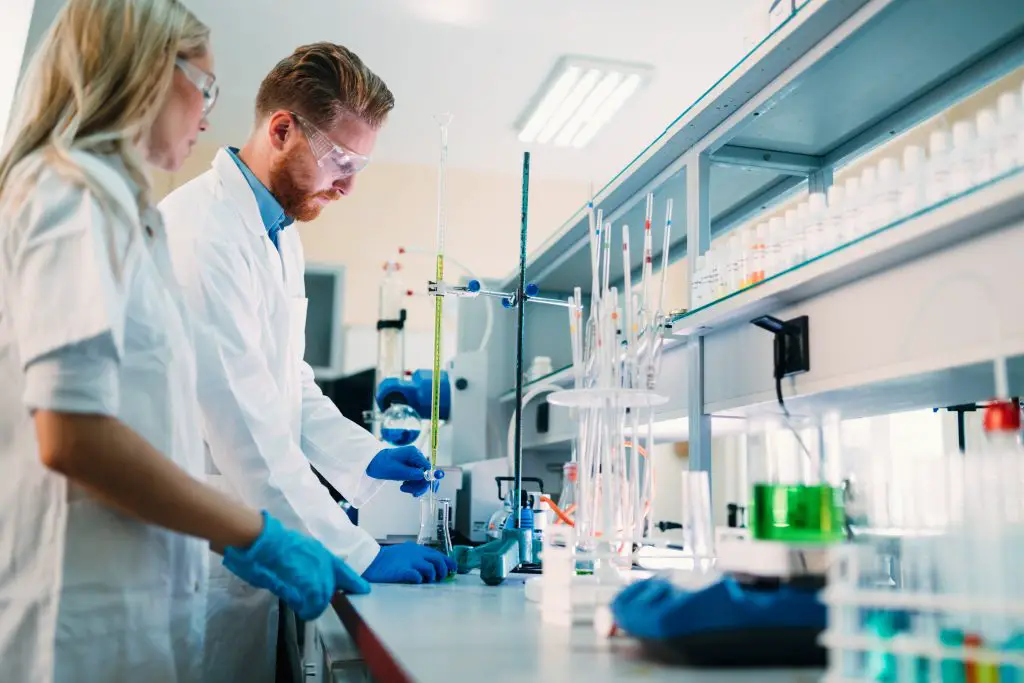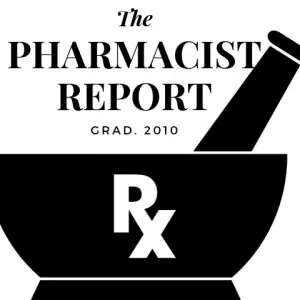
Some of the basics of being a pharmacist include dispensing medications that are first prescribed by doctors, giving shots like flu shot or shingles, advising their patients on that drug, answering any questions, compounding, among other tasks. So you do need to know a lot of different things like the back of your hand.
Depending on where you work you will be busy the entire time with increased stress you need to be able to call on what you learn in pharmacy school quickly.
So do you need to be good at chemistry to be a pharmacist?
You don’t necessarily have to be good at chemistry to be a pharmacist this will depend entirely on the career you choose whether it be retail, specialty or becoming a resident. If retail you probably don’t need to know that much outside of the basics where with resident you will need to be very good and knowledgeable in this area.
You don’t have to like chemistry to be good at it you can learn and grind your way through school to attain what you need to apply as a pharmacist. Below you see exactly how much chemistry you will be faced with throughout your schooling.
How Much Chemistry Is Involved In Pharmacy School?
There is a ton of chemistry involved with pharmacy school and depending on what specialize in you will use chemistry throughout your career as well.
So it really doesn’t come down to if you like chemistry it is more about how passionate you are about becoming a pharmacist and grinding your way through required chemistry courses.
With so many different types of chemistry like biochem or stereo chem you are going to be good at some of them and struggle at others that is just the way it is.
Pharmacist Chemistry Courses
This is just a brief overview of courses you will probably run into on your journey to being a pharmacist. Check directly with the schools you are attending for their curriculum as they can differ.
Biochemistry – this course covers both biochem and chem by applying it to the production of more common and useful drugs. Since a lot of pharmacology is broken down into simple chemical compounds you will focus mainly on this from a living organism standpoint. This is particularly a great course for getting into hospital/inpatient pharmacy.
Medicinal Chemistry – this subject dives more into the research side of drugs and interactions with living organisms. You will be introduced to new concepts for using drugs safely and also discovering and improving the way that existing drugs are used.
Physiology – this is the science of life that takes a look into why living things work. You will look into how a body works and how the health of that body effects the surrounding parts. Why do things go wrong with human bodies and why does disease happen. The integration of all things involved with the whole body function is what separates Physiology from other subjects in science.
Pharmaceutics – this is the part of pharmacy that goes into using old drugs and new chemistry to be used safely and more efficiently by patients. Science of dosage form design is another word for pharmaceutics. So you will be taking drugs in their most pure and simple form and putting them into dosage form.
General Chemistry – general chem for pharmacist students focuses on the primary ares you will be dealing with as a future pharmacist. You will be looking at general, organic, and natural products that are related to specific drugs.
Organic Chemistry – encompasses most areas of life in a variety of areas for biological and/or physiological systems. This subject just like the others are very important specifically when it comes to knowing how to measure out reagents for compounding. This will show you how to pick out differences from similar compounds that most other would miss.
Example Chemistry Schedule:
P1 year = 2 semesters of fast paced biochemistry
P2 year= 4 classes, 2 classes per semester of medicinal chemistry
P3 year= 4 classes, 2 classes per semester of medicinal chemistry
What Do Pharmacist Major In Undergraduate?
You can actually take a pre pharmacy curriculum that will allow you to complete what needs to be done in order to go straight into pharmacy school. They do have 6 year schools as well that you will be automatically accepted into the program as long as you maintain a certain GPA.
What Do You Have To Be Good At To Be A Pharmacist?
For becoming a pharmacist you need to be good at three main things which are science, math and memorizing subject matters. If you can master those three areas you will be a good pharmacist and have a long career.
What Classes Should I Take In College To Become A Pharmacist?
You will need to look specifically into the schools you are looking to attend but here is an example list of what you will take in the pre pharm area of your career as a pharmacist:
- General Chemistry
- Organic Chemistry
- Biology
- Physiology
- Physics
- Microbiology
- Biochemistry
- Statistics
- Calculus
- English
- College Writing or Speech
Pharmacist Education Requirements In High School
There really are no requirements for high school however you should take advantage and lean heavily on the science and math classes your last two years of high school. A lot of high schools only require 3 years of math.
If you can during that 4th year take an Advanced Placement class for Calculus this way you are getting ahead for your pre pharm courses.
You can also look into college Chemistry classes. The incentives here are that you will usually pay cheaper per credit hour and it will count for college credit and high school credit. Also these classes are usually weighted bringing your high school GPA up as well.
Is Physics Required For Pharmacy?
Yes you need to take Physics in your 2 years of required classes also known as pre pharmacy school. You will need to take this in order to be considered for acceptance into pharmacy school.
Conclusion
Although you don’t have to be good at chemistry you do need to improve upon it. After all if you can memorize things very well you can really be good at any course if you just go over the subject matter in detail.
You can beef up your fundamentals in chemistry by starting to take classes in high school and continuing this as you go through your first 2 years of pre pharmacy school.
Without chemistry you will not be able to become a pharmacist. As you choose which area of pharmacy you want to go into you will learn where chemistry will be used most. With retail probably being the least to hospital areas being the most.

